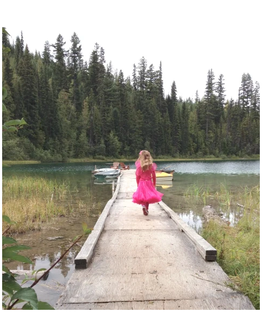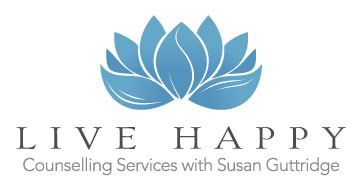 A degree of control in our lives can create a sense of security. We also require it in healthy dosages in order to be the autonomous healthy people we strive to be. A degree of control in our parenting is necessary when creating structure, routine, and boundaries in our home and with our children. However, control can also wreck havoc on our interpersonal relationships if it becomes excessive. Before going in to detail, I would like to share a story… In October 2003, while I was residing in Mississauga Ontario, a beautiful 9 year old girl named Cecilia Zhang was abducted from her home during the night – out of her own bedroom window while she and her family slept. I did not know her, and I did not know her family… but I was forever changed by her. At the time, I was pregnant with my first child. Cecilia’s story was covered on all the news channels, and her picture was plastered in every store window in my community. It is a disturbing story that chills me and brings tears to my eyes even now, 9 years later. As my own precious child was growing inside me, completely safe and protected, I desperately longed for Cecilia to be found and returned home. To her parents heartbreaking dismay, she was not. As I watched Cecilia’s investigation unfold, the remaining beliefs I held about the world as a safe place began to crumble. I have worked hard to keep my fears in-check since that moment, so as not to pass them on to my children. But the fears are always there, just beneath the surface. I keep the windows locked at night. I use a home alarm system. I try to get to know parents prior to my children having play-dates. I research daycare providers prior to employing them… But every now and then, when I have had a stressful day at work or some sort of crisis is underfoot, my need for control kicks in to overdrive. I catch myself wanting to tell my kids (and my husband!) what to do. I even start planning it in the car on the way home! And then I realize what I am doing, and I realize that my day has affected me adversely… and I take a deep breath to release it…. I believe that many parents want to have the illusion of control. That illusion helps us feel safe and enables us to believe we possess the capacity to keep ourselves and our loved ones safe. Trauma researchers Follette and Pistorello (2007) state that when our lives feel out of control, we strive to exert control over our thoughts, feelings, and environment (including the people in our environment!). That control we feel we must exert in order to escape feelings of uncertainty and fear sever only to become the problem! Too much control is detrimental to our relationships – especially to our children. As parents, we need to successfully navigate the delicate balance between keeping our kids safe and street smart while not passing our own issues on to them. Are there times when you have noticed a sudden excessive need for control or order within or around you? Have you ever caught yourself attempting to control those around you with threats or coercion? Have you ever caught yourself attempting to control what those around you are doing, even when it has no impact on you? If so, it might be time to check in on how you are doing. Keeping our kids safe is one of the most important jobs of being a parent. Honouring what is going on for ourselves as parents, is an important step in that process. How can you nurture your need for security, for stability, for a degree of control and so forth, without alienating your children and loved ones? Here are some suggestions:
(Please also feel free to leave your own suggestions as comments to this post!) References: Finding Life Beyond Trauma: Using Acceptance and Commitment Therapy to Heal from Post-traumatic Stress and Trauma-Related Problems, by Victoria M. Follette and Jacqueline Pistorello (2007) This article was originally posted on October 20, 2010, to Happy Parents = Happy Kids (focusedonparenting.wordpress.com) by Susan Guttridge
0 Comments
Your comment will be posted after it is approved.
Leave a Reply. |
AuthorSusan Guttridge is a trauma-informed Master level Counsellor with the clinical designation of Canadian Certified Counsellor (CCPA). She has 20+ years experience providing individual and group therapy. Archives
January 2024
Categories
All
|

 RSS Feed
RSS Feed